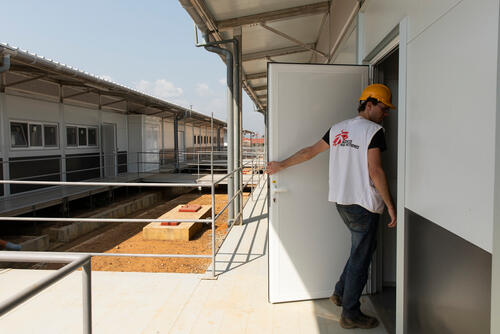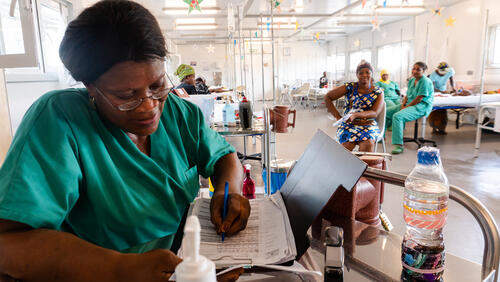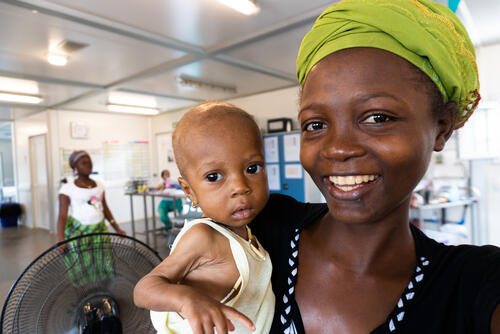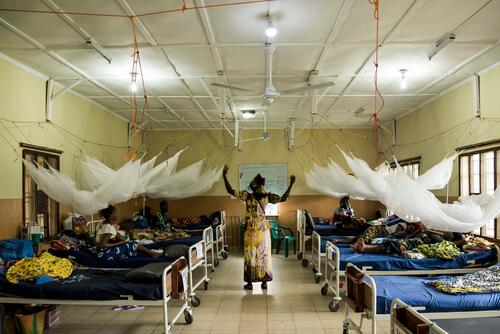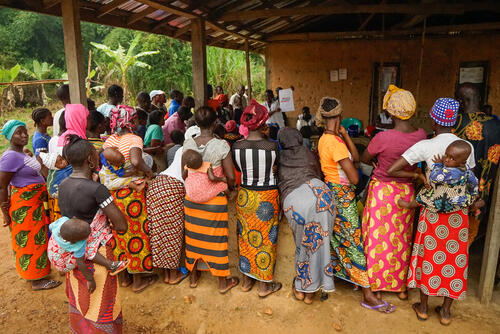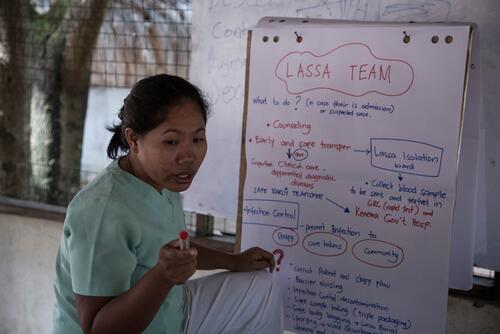On 6 March, Médecins Sans Frontières (MSF) welcomed the first patients in its new 63-bed hospital in Hangha town, Kenema district, southeast Sierra Leone.
The country has one of the world’s highest maternal and child mortality ratio: each year about 1,360 women die during or shortly after child birth.<a href="https://www.afro.who.int/sites/default/files/2018-03/World%20Health%20Organization%20Sierra%20Leone%20Annual%20Report%202017.pdf">World Health Organization: Sierra Leone Annual report 2017</a>
An already fragile health system, and a dire lack of health workers, caused in part by the 2014 Ebola outbreak, have also led to a drastic rise in the number of deaths among children under five.
“Mortality estimates were already one among the highest in the world for children under five and researchers have predicted that child mortality could, according to the United Nations, increase to 114 for every 1,000 live births, a further 74 per cent due to the loss of health personnel during the Ebola outbreak,” says Olga EM, medical coordinator for MSF in Sierra Leone.
Between May 2014, when the first case of Ebola was recorded in Sierra Leone, and early 2016, when the country was declared Ebola-free, the epidemic claimed 3,956 lives, including seven per cent of the country’s health workers.
This is why MSF has made the professional development of local health workers one of its top priorities in Sierra Leone, as EM explains: “Training was provided to 160 MSF hospital staff in Kenema district in 2018. Another 50 state-enrolled community health nurses were sent to Ghana for a 24-month scholarship programme to become state-registered nurses and midwives. Another 12 nurses from MSF and the Ministry of Health and Sanitation joined the team in Ghana for an 18-month anaesthetics diploma course.”
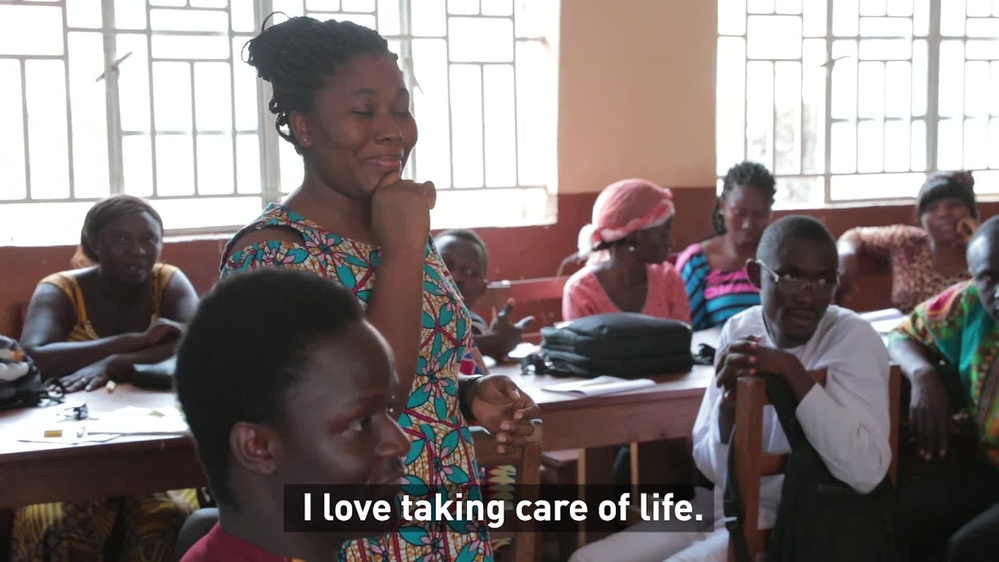
The story of MSF and local health workers in Sierra Leone
During its first phase, the MSF hospital in Kenema will provide a laboratory and blood bank, alongside paediatric services that include an emergency room, a paediatric intensive care unit, an inpatient therapeutic feeding centre, a general paediatric ward and an isolation ward for suspected Lassa fever cases.
In the first three months after it opened, 3,092 patients were triaged; of these 1,988 were seen in the emergency room, including 449 who were admitted to the inpatient feeding centre and 253 who were admitted to the general paediatric ward. A total of 261 patients needed admitting to the paediatric intensive care unit.
Out of all admissions, 23 suspected Lassa fever patients were admitted to the isolation unit, but so far all the cases have tested negative.
One-year-old Fudia was the first patient treated at the hospital. She was brought to the emergency room by her mother Mabinty.
“I brought my daughter to this hospital because she was suffering from poor appetite and diarrhoea. I heard about the hospital from my neighbours and I decided to come for the services.”
“Fudia cried when the staff in green scrubs checked her height, weight and vital signs. I could only imagine how strange and overwhelming it must have been to be the only patient in a brand new hospital,” says MSF nurse Amanda Hooyboer. “During the first feeding time, the staff began singing and clapping, and we saw the first beautiful smile from our young patient.
Over the next few days, I saw Fudia healing and growing. I knew that we were here for a reason; that in opening this hospital we would help more children smile, grow and thrive.”
Through comprehensive support to 13 primary health units in three chiefdoms (Gorama Mende, Wandor and Nongowa) and the new hospital in Hangha town, MSF aims to reinforce the district health system and reduce Sierra Leone’s record-breaking levels of child and maternal illness and mortality.
The MSF hospital will be officially opened on 14 June 2019 by the Honourable Minister Professor Alpha Tejan Wurie, Minister of Health and Sanitation.
MSF first worked in Sierra Leone in 1986. The organisation returned in 1995 to provide assistance to internally displaced Sierra Leoneans during and immediately after the decade-long civil war. Another large-scale response was organised during the 2014-16 Ebola outbreak.
MSF now works in two districts, Kenema and Tonkolili, providing medical care and supporting initiatives to strengthen the health system.



